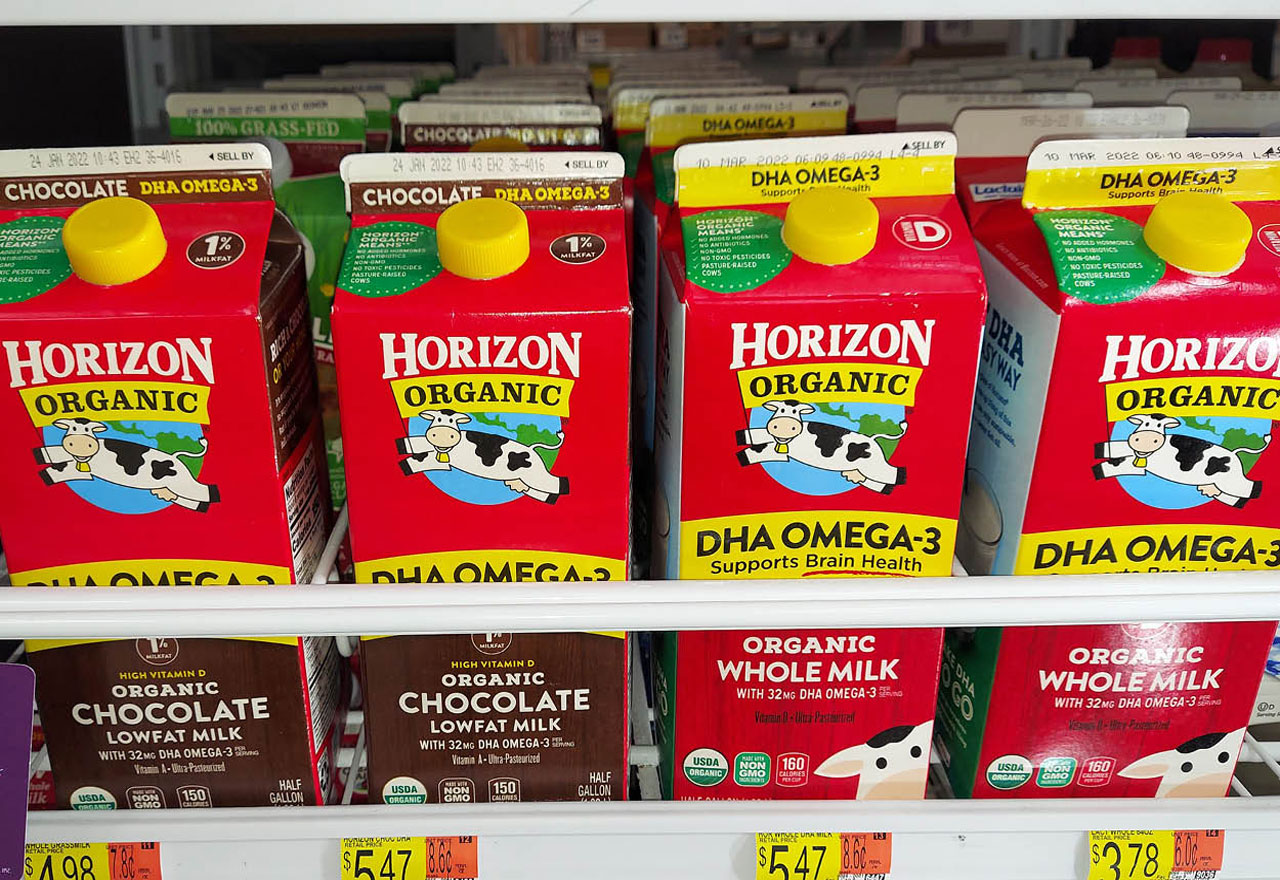The Cornucopia Institute is investigating recent, disturbing allegations of animal abuse at an industrial organic dairy in Texas. Lone Star Organic Dairy supplies “organic” milk to the brand Horizon. Following the public shaming, Horizon has reportedly suspended its sourcing from this factory farm. But for how long?
“No one who buys organic milk expects it to come from abused cows in feedlots,” says The Cornucopia Institute’s Executive Director Melody Morrell. “These allegations are stomach-turning.”
Despite the happy cows depicted on Horizon’s packaging, the brand sources milk from a number of factory farms, landing it at the bottom of Cornucopia’s Organic Dairy Scorecard. While many ethical farms also provide milk for the Horizon label, operations like Lone Star Organic Dairy produce most of the milk the brand sells. Horizon is owned by multinational conglomerate Danone NA, which controversially dumped nearly 100 small dairy farm contracts in the Northeast in 2021.
“This is the true cost of cheap organic milk,” says Morrell. “You can avoid pesticides, hormones, and antibiotics by purchasing any organic brand. But factory ‘organic’ dairies treat animals like machines, just like in conventional dairy, while undercutting real organic farmers.”
How does something like this happen in organic? Organic Certifiers, Inc., a USDA-accredited certifying agency, is responsible for inspecting and certifying Lone Star. How thorough were Organic Certifiers’ inspections of the Lone Star operation? Were any of the inspections unannounced? Cornucopia awaits action from the National Organic Program: They report that they are investigating the operation. We will continue to watchdog this issue as it unfolds.
The organic standards promote animal welfare in its basic requirements for outdoor access and grazing standards for ruminants. The rules require that living conditions accommodate livestock health and natural behavior and require producers to manage animal manure properly. The allegations call Lone Star Organic Dairy’s practices into question.
The recently finalized Organic Livestock and Poultry Standards (OLPS) could make it easier for the National Organic Program to act on animal welfare violations by adding more specificity to livestock health and care. It will require farmers and operators to actively monitor lameness in their animals and to treat injury and illness quickly. OLPS is not what Cornucopia would consider groundbreaking, but as these allegations show, it is badly needed. The rule will add foundational animal welfare assurances to organic food.
Industrialized food production is extractive and harmful. Cornucopia’s Organic Scorecards help eaters avoid toxic chemicals, steer clear of factory farms, and find food that’s packed with flavor.


